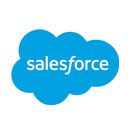
Salesforce
San Francisco, California, U.S.
Salesforce is a renowned cloud-based software company primarily known for its customer relationship management (CRM) platform.
Founding:
Founders: Salesforce was founded in March 1999 by former Oracle executive Marc Benioff, Parker Harris, Dave Moellenhoff, and Frank Dominguez.
Vision: Benioff's vision was to create an easier-to-use, cloud-based CRM system that would revolutionize how businesses manage customer interactions and data.
Milestones:
Launch of Salesforce CRM: In 2000, Salesforce launched its flagship product, the Salesforce Customer Relationship Management (CRM) platform, as a pioneer in cloud-based software.
IPO: In 2004, Salesforce went public on the New York Stock Exchange.
Acquisitions: Over the years, Salesforce made strategic acquisitions, such as acquiring ExactTarget in 2013, which expanded its marketing capabilities.
Evolution:
Technological Advancements: Salesforce continuously evolved, incorporating new technologies like artificial intelligence (AI), machine learning (ML), and analytics into its platform.
Expansion of Offerings: It expanded beyond CRM, offering various cloud-based solutions like Sales Cloud, Service Cloud, Marketing Cloud, and Commerce Cloud.
Cultural Context:
Innovation and Philanthropy: Salesforce is known for its strong culture of innovation and philanthropy. Its 1-1-1 model pledged 1% of equity, product, and employee time to charitable causes.
Employee-Centric Approach: The company has emphasized employee well-being and workplace culture, consistently ranking high in best places to work lists.
Positioning & Brand Values:
Customer-Centric Approach: Positioned as a customer-centric company, Salesforce focuses on empowering businesses to better connect with their customers.
Values: Emphasizes values like innovation, equality, trust, and customer success in its brand positioning.
Product Design:
User-Friendly Interface: Salesforce prioritizes user-friendly interfaces and intuitive designs to enhance user experience across its various products.
Customization: Offers extensive customization options to cater to diverse business needs.
Visual Evolution:
Brand Identity: Salesforce’s visual identity has undergone subtle changes, focusing on simplicity and modernity in its logo and design elements.
Successes and Challenges:
Successes: Rapid growth in the CRM market, dominance in cloud-based solutions, consistent revenue growth, and a strong customer base.
Challenges: Intense competition, integration complexities due to numerous acquisitions, and balancing innovation with maintaining user-friendly interfaces.
Controversies:
Data Privacy Concerns: Like many tech companies, Salesforce has faced scrutiny regarding data privacy and security practices, although it has taken steps to address these concerns.
Product Range:
CRM Solutions: Salesforce's primary product range includes Sales Cloud, Service Cloud, Marketing Cloud, Commerce Cloud, and other industry-specific cloud solutions.
Competitors in Different Segments:
CRM Segment: Competes with companies like Microsoft Dynamics CRM, SAP CRM, and Oracle CRM.
Cloud Solutions: Faces competition from companies offering cloud-based solutions, such as Microsoft Azure, Amazon Web Services (AWS), and Google Cloud Platform.
Revenue Streams & Financials:
Subscription-Based Revenue: Salesforce generates revenue primarily through subscription-based services and licensing of its cloud-based solutions.
Financial Performance: Over the years, Salesforce has shown consistent revenue growth and profitability, becoming one of the leaders in the CRM market.
- Other Brands
- Apple
- Microsoft
- Amazon
- Google
- Samsung
- Toyota
- Mercedes-Benz
- Coca-Cola
- Nike
- BMW
- McDonald’s
- Tesla
- Disney
- Louis Vuitton
- Cisco
- Instagram
- Adobe
- IBM
- Oracle
- SAP
- Facebook
- Chanel
- Hermes Paris
- Intel
- YouTube
- JP Morgan
- Honda
- American Express
- Ikea
- Accenture
- Allianz
- Hyundai
- UPS
- Gucci
- Pepsi
- Sony
- Visa
- Salesforce
- Netflix
- PayPal
- Mastercard
- Adidas
- ZARA
- AXA
- Audi
- airbnb
- Porsche
- Starbucks
- GE
- Volkswagen
- Ford
- Nescafe
- Siemens
- Goldman Sachs
- Pampers